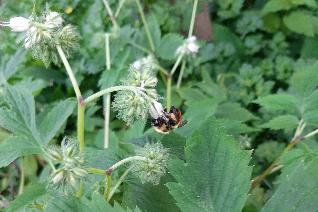City asks for feedback on natural garden exemption

The City has opened up
a public consultation regarding planned revisions to the Grass and Weeds bylaw.
Link to the bylaw: https://www.toronto.ca/legdocs/municode/1184_489.pdf
Link to the public
consultation: https://www.toronto.ca/services-payments/permits-licences-bylaws/natural-garden-exemption/
The public consultation refers only to removing the “Natural Garden Exemption” but provides no other clarification regarding other problematic aspects of the bylaw.
Please consider sending comments to the City regarding the Grass and Weeds bylaw and the Natural Garden Exemption.
Below are some points to consider including in your letter.
Comments must be submitted by March 31st at 11:59pm.
Submit comments to: MLSFeedback@toronto.ca and please consider cc’ing your Councillor as well.
It is impossible to provide meaningful input regarding removing the Natural Garden Exemption if the vagueness and arbitrariness in the rest of the Grass and Weeds bylaw, along with current enforcement measures, remain unchanged.
The bylaw refers to “grass and weeds” and requires them to be cut to 20cm. “Grass” is not defined, so it is unclear which of the more than 12,000 species of grass are regulated in the bylaw (sweetgrass? native tallgrass prairie grasses? corn? EcoLawn? bamboo? All of these are grasses). We urge you to either remove this provision or clearly define the grasses that are regulated.
We urge you to list prohibited weeds in the bylaw so there is no confusion. (The current bylaw does not list prohibited weeds but instead refers to the list of weeds in the Weed Control Act—an Act that specifically exempts urban areas. The current bylaw also prohibits “local weeds” but no “local weeds” have been designated in Toronto.) Listing prohibited weeds in the bylaw would provide clarity for residents.
Regarding enforcement, we urge you to place a minimum onus on complainants to identify the prohibited weed and/or health or safety threat(s) that exist in the garden/landscape/yard before any enforcement action (such as sending an Advisory Notice or sending out an inspector) is taken.
We urge you to remove all vague and arbitrary language currently in the bylaw, such as the phrases “good repair,” “well maintained,” "managed" and “nuisance.”
To make the bylaw consistent with other city priorities and initiatives: the Pollinator Protection Strategy, access to nature, storm water management.
Some plants need to grow beyond 20cm to produce seed. Preventing this growth interferes with biodiversity and food sovereignty goals.
Arbitrary and vague language allows people to use the complaints process for purposes unrelated to the goals of the bylaw. Growers who are Black, Indigenous, people of colour, newcomers or other equity-seeking groups may be particularly vulnerable to misuse of the complaints process.
Posted on
